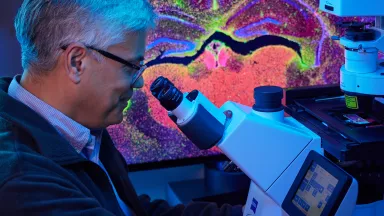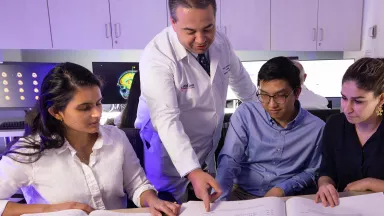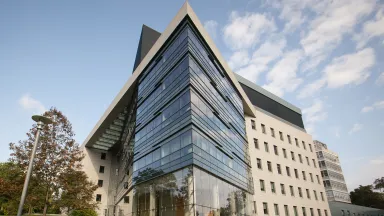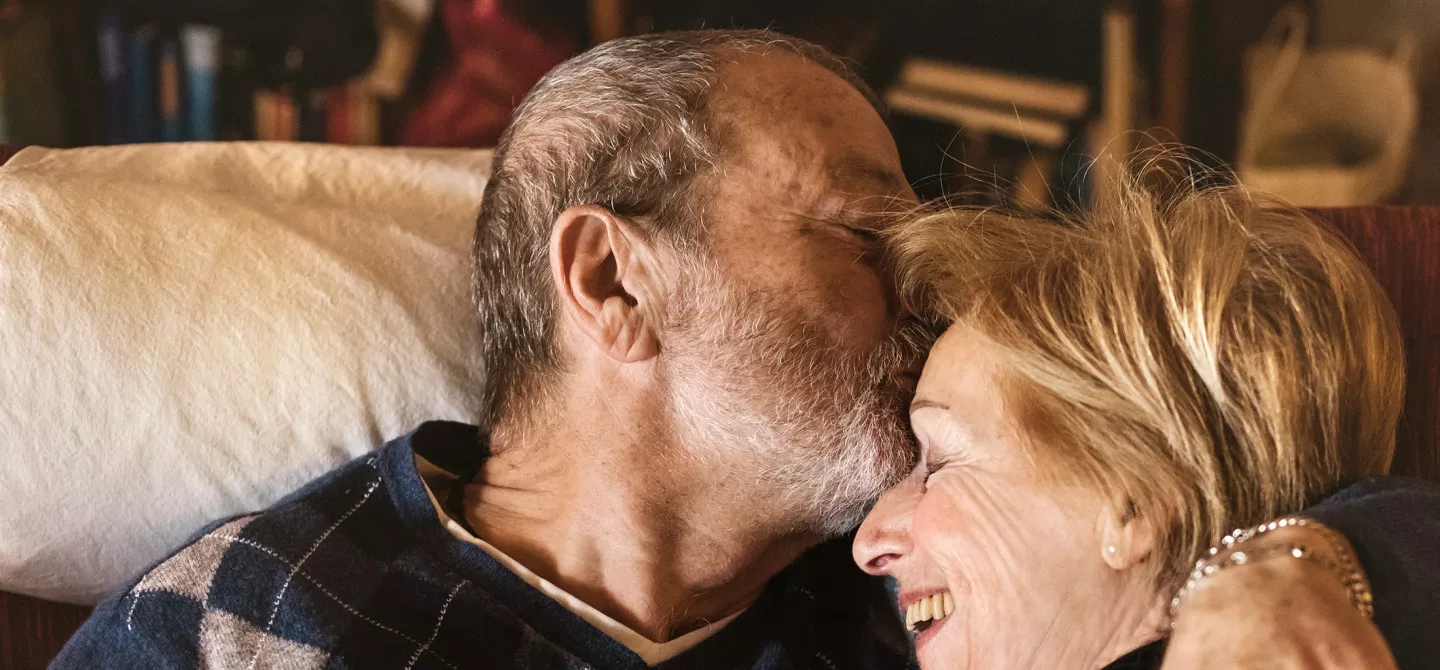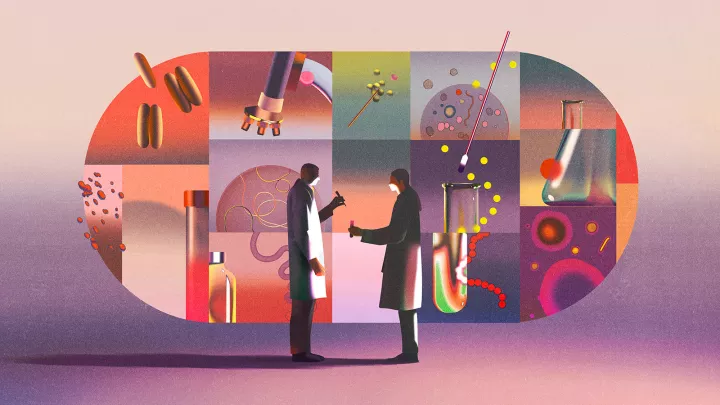Our Approach to Alzheimer’s Disease

The Montefiore Einstein Hudson Valley Center of Excellence for Alzheimer’s Disease (CEAD) is at the forefront of research and treatment innovation for individuals with Alzheimer’s disease and other types of dementia. Committed to clinical care excellence for older adults, we are leaders in the management of memory disorders, recognized as an Age-Friendly Health System and one of only ten Alzheimer’s Disease Centers of Excellence in New York State, supported in part by a grant from the New York State Department of Health. We are ranked in the top one percent of all hospitals in the nation for neurology and neurosurgery according to U.S. News and World Report, and we serve as a national and international referral site for complex and challenging cases of dementia.
Our Center of Excellence combines the expertise and best-in-class practices of Montefiore Einstein’s extensive network of hospitals and physician groups in the Hudson Valley, the acclaimed Montefiore Einstein Center for the Aging Brain (CAB), and the research and training capabilities of the Albert Einstein College of Medicine.
Offering access to state-of-the-art technologies, the CEAD emphasizes comprehensive care for older adults with cognitive complaints to optimize neurological function and brain health by providing highly coordinated multidisciplinary care, including diagnosis, treatment, counseling, education and assistance through community-based support systems for people with Alzheimer’s disease and related dementias, their caregivers and their families.
Our team of renowned specialists, including neurologists, geriatricians, neuropsychologists, geriatric psychiatrists and social workers, works collaboratively to treat the full range of memory disorders and to determine the etiology of an individual’s memory issues, whether caused by Alzheimer’s disease, another form of dementia, or are the result of an unrelated medical issue.
A Center of Excellence
We are committed to expanding knowledge about Alzheimer’s disease and related dementias, improving access to screening, diagnosis and clinical trial opportunities, facilitating referrals to community-based services for individuals with memory impairments and their caregivers, and developing training programs for providers and medical students across all clinical disciplines.
Communities We Serve
The CEAD serves patients in the Bronx and surrounding communities, with a focus on the seven counties of the Hudson Valley region: Westchester, Rockland, Putnam, Dutchess, Sullivan, Orange and Ulster.
An Age-Friendly Health System
Committed to excellence in clinical care for older adults, we are recognized as an Age-Friendly Health System. Care for every older adult is guided by the “Four Ms” framework, designed to improve clinical outcomes:
- what Matters: Consider each patient’s health goals and care preferences.
- Mobility: Maintain mobility and function.
- Medication: Reduce side effects of drugs that can affect mobility, mentation and what matters.
- Mentation: Focus on delirium, dementia and depression.

Advanced Treatments
Our center provides access to state-of-the-art diagnostic technologies, promoting early and accurate diagnosis to help identify at-risk patients when the disease burden is lower. We offer access to advanced and newly emerging treatments, including disease-modifying therapies, as well as community-based support services to maximize brain health and resilience and improve quality of life.
Your Evaluation: What to Expect
Your evaluation will take place at our Center for the Aging Brain and typically involves several visits. Evaluations via telemedicine are also available. The assessment typically includes the following:
- A review of your health history and current medications
- A complete physical exam
- Tests of your memory and other cognitive functions
- Potential blood tests, MRI or CT scan of your brain
- Community referrals for support services
Following your evaluation, your team will prepare recommendations for you and your primary care doctor or referring specialist. They will carefully review your plan with you, share information on helpful community services and schedule regular follow-ups to determine if adjustments are required to your care plan.
Caregiver & Family Support
Caregivers, friends and family members play vital roles in a patient’s journey. We encourage you to attend appointments in person or on video whenever possible. We have also compiled a shortlist of warning signs and suggestions as you navigate the patient’s individual path to health.
Helpful Resources
For more information on Alzheimer’s disease, we suggest the following websites:
Your Alzheimer's Center Team
Our elite team spans an extensive range of specialties and includes neurologists, neuromuscular specialists, geriatricians, neuropsychologists, geriatric psychiatrists and social workers who collaborate on research, treatment and comprehensive care.
Jessica L. Zwerling, MD
Jason A. Cohen, MD
About Alzheimer’s Disease
Alzheimer’s disease is a brain disorder that slowly destroys memory and thinking skills and, eventually, the ability to carry out the simplest tasks. In most people with the disease, symptoms first appear when they are in their mid-60s. Early-onset Alzheimer’s occurs between a person’s 30s and mid-60s and is very rare. Alzheimer’s disease is the most common cause of dementia among older adults.



